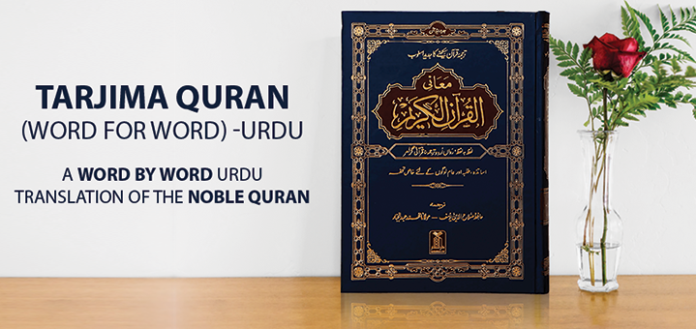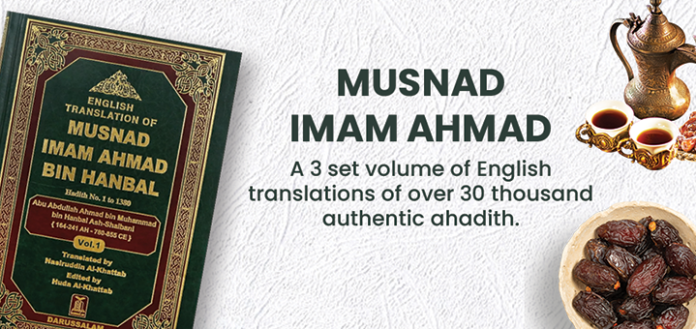Are you aware of the Prophet’s ﷺ sayings? How much knowledge do you have on hadiths?
Islam is a complete religion with teachings for mankind regarding every aspect of life. The teachings of Islam have been conveyed primarily through the Quran and Sunnah. Just the way the Quran holds an esteemed position in Islam so do the hadiths. It’s through the combined study of the Quran and the hadith that we can truly understand the message of Islam. Hence the study of hadiths is also important for all Muslims.

Allah, may He be glorified and exalted, chose from among His slaves the best of the scholars and gave them the special mission of conveying the Prophet’s ﷺ sayings. He made them a means of preserving it.
It is by His grace to this Ummah (Muslim nation) that Allah has preserved its religion; to Him be praise for the greatness of His blessings. First and foremost among these upright scholars are the noble Companions (Sahabah), who learned the Revelation from the lips of the Messenger of Allah صلى الله عليه وسلم without any intermediary; then they conveyed it in a precise and accurate manner to those who came after them of the Followers (Tabi’een). Then the Tabi’een transmitted it to those who came after them, until there came the time of documentation, when the Imams of hadiths compiled the books known as Jawami`, Masanid and Sunans, out of keenness to preserve the narrations of the Messenger of Allah ﷺ.

They did not omit anything that had been transmitted from the Prophet ﷺ sayings but they recorded it, paying a great deal of attention to finding out about the narrators of the hadith, so as to distinguish and highlight those Hadith that had been narrated with Sahih isnads (sound chains of narrators).
One of the greatest compilations of the Sunnah and books of hadith is the Musnad by Imam Ahmad bin Hanbal, which is organised into compilations of the Hadiths narrated by each Companion (Sahabi), starting with the ‘ashra mubashshara (the ten who got the good news of Paradise in this world from the Prophet ﷺ at one time). This highlights their status and the efforts they made to preserve the hadiths of the Messenger of Allah ﷺ.

All Islamic scholars praised the Musnad of Imam Ahmad. Al-Hafiz Abu Moosa al-Madeeni in particular wrote a book in which he highlighted the great features of the Musnad. In his book he said:
“This book is an important source and trustworthy reference for the scholars of Hadith, as he (Imam Ahmad) selected from a large number of Hadith he came across and the plentiful reports he heard, and he put a great deal of effort into making it a prominent, leading and reliable source. When disputing an issue, it is a refuge and a source of help.”
Then he (al-Madeeni) narrated a report with his chain of narrators going back to Abdullah bin Ahmad bin Hanbal, the son of Imam Ahmad bin Hanbal, according to which he said: “I said to my father رحمه الله; Why were you reluctant to write any books, but you compiled the Musnad?” He said: I compiled this book to be a reference, if people differ concerning the Sunnah of the Messenger of Allah صلى الله عليه وسلم, they may refer to it.” Al-Hafiz Ibn Katheer said in Ikhtisar Uloom-ul-Hadith: “In the Musnad of Imam Ahmad there are a great many isnads and texts that are very much at the level of the hadith of Muslim and even those of al-Bukhari too, but they are not to be found in their books or one of them, and in fact were not narrated by any of the authors of the four books, namely Abu Dawood, at-Tirmidhi, an-Nasa’i and Ibn Majah.”
Shaikh Ahmad Shakir said, commenting on the words of Ibn Katheer in al-Ba’ith Al-Hadeeth: “The Musnad by Imam Ahmad bin Hanbal is, in our view, the greatest compilation of Sunnah; it contains many Sahih Hadiths that are not narrated in any of the six books, as al Hafiz Ibn Katheer said.”
Read Our Blog Tarjima Quran (Word for Word)-Urdu

After 179 AH, first of all he studied with Imam Abu Yoosuf al-Qadi. He missed out on studying with Ibnul-Mubarak when he came to Baghdad (he did not meet him because Ibnul-Mubarak had already departed on a campaign against the Byzantines). And he remained close to Hushaim bin Basheer until the latter died (183 AH). In this study circle he also heard of the death of Imam Malik. Then he went to Kufah where he became famous as an authority on reports narrated from Hushaim. He memorised all the books of Wakee’, and was held in high esteem by Imam Wakee’, He left for Basrah in 186 AH, where he wrote down three hundred thousand hadretis from Bahz bin Asad (d.197 AH) and ‘Affan (d.220 AH). The narrator said: I think he said: and Rawh bin Ubadah (d.205 AH). He travelled to Hijaz in 191 AH and returned to Basrah in 194 AH, where he attended the circle of Sa’eed al-Qattan. Then he went to Wasit, where he learned from Imam Yazeed bin Haroon. He returned to Makkah in 197 AH, where he led a study circle in Masjid al-Khaif and issued many fatwas there when Ibn Lyainah was still alive.
As he said: “There is no choice but the Sunnah and following it. An analogy should only be based on comparing something to an established principle (a precedent from the time of the Prophet or from the Prophets ﷺ sayings). But to come to the principle and demolish it and then say this is by analogy – on what basis are you making your analogy?” In other words, he would reject the idea of analogy and object to it if it was not based on a sound proven precedent. His respect for the scholars of hadith is reflected in the following quotation from him: “Whoever holds the scholars of hadith in high esteem, the Messenger of Allah (ﷺ) will hold him in high esteem, whoever looks down on them will have no value in the eyes of the Messenger of Allah, because the scholars of hadith are the most knowledgeable about the way of the Messenger of Allah ﷺ.” From the comments of His Excellency Dr. ‘Abdullah bin ‘Abdul-Muhsin al-Turki in Tahgeeg al-Musnad, p. 17-18. Ibnul-Qayyim described the main foundation on which Imam Ahmad bin Hanbal based his fatwas: The texts (Quran and Sunnah), then the fatwas of the Salhalalı, then selecting one of the views of the Saliabalı if they differed, then following a inursal or da’eef hadith (which in his view were valid and were categories of Iasan hadiths). Then if he did not find any text concerning the issue, or any opinion of the Salınhalı or one of them, or any mursal or da’eef report, he would resort to the fifth option, which is analogy, and he would use it when necessary.
As the Musnad of Imam Ahmad is held in Such high esteem by the scholars of hadith, Darussalam Publisher’s has undertaken to translate it into English. This is a very beneficial project that will contribute to conveying the Sunnah of the Prophet ﷺ to speakers of that language and highlight the great efforts made by the Imams of Islam to preserve and protect the Sunnah.
Read Our Blog Post on Riyadus- Saliheen (2 Vol. Set)

The compiler of this book is Sheikh-ul-Islam, a prominent scholar, Ahmad Bin Muhammad Bin Hanbal Ash-Shaibani رحمه الله. He was born in 164 and died in 241 AH. In the age of fifteenth, he began to learn the knowledge of Hadith in 179 AH. By the time he reached his forties, in 204 AH, he was a prominent figure in the fields of hadiths and fatwas and people began to travel to learn from him. He had a testing (Mihnah) concerning the issue of whether the Quran was created or only the words uttered by Allah and not created. He was punished in this regard but he never gave up and left a shining history and right doctrine for the Muslims.
This Musnad of Imam Ahmad Bin Manbal is a collection of more than 30 thousand Hadiths along with a compendium of those hadiths which are not available in the other famous six books of hadith. This book contains a comprehensive collection of hadith categorized by sahabi. The status of every Hadith regarding Sahih and Daeef is mentioned along with the international serial number for hadith. Translations have been provided in a column-wise adjacent to the Arabic text for easy comprehension.
Here are some extracts from the book to get a better understanding of the subject matter by Imam Ahmad Bin Hanbal:
Extract 01: Translations of hadiths narrated by Musnad Abu Bakr Siddeeq رضي الله عنه
مسند أبي بكر الصديق رضي الله عنه (2/1)
Musnad Abu Bakr Siddeeq رضي الله عنه [½]
…قَامَ أَبُو بَكْرٍ فَحَمِدَ اللَّهَ وَأَثْنَى عَلَيْهِ ثُمَّ قَالَ يَا أَيُّهَا النَّاسُ إِنَّكُمْ تَقْرَءُونَ هَذِهِ الْآيَةَ {يَا أَيُّهَا الَّذِينَ آمَنُوا عَلَيْكُمْ أَنْفُسَكُمْ} حَتَّى أَتَى عَلَى آخِرِ الْآيَةِ أَلَا وَإِنَّ النَّاسَ إِذَا رَأَوْا الظَّالِمَ لَمْ يَأْخُذُوا عَلَى يَدَيْهِ أَوْشَكَ اللَّهُ أَنْ يَعُمَّهُمْ بِعِقَابِهِ أَلَا وَإِنِّي سَمِعْتُ رَسُولَ اللَّهِ صَلَّى اللَّهُ عَلَيْهِ وَسَلَّمَ يَقُولُ إِنَّ النَّاسَ وَقَالَ مَرَّةً أُخْرَى وَإِنَّا سَمِعْنَا رَسُولَ اللَّهِ صَلَّى اللَّهُ عَلَيْهِ وَسَلَّمَ
…Abu Bakr رضي الله عنه stood up and praised and glorified Allah, then he said: O people, you recite this verse: “O you who believe! Take care of your ownselves. If you follow the (right) guidance [and enjoin what is right (Islamic Monotheism and all that Islam orders one to do) and forbid what is wrong (polytheism, disbelief and all that Islam has forbidden)] no hurt can come to you from those who are in error” [al-Ma’idah 5:105]. We heard the Messenger of Allah say: “If the people see evil and do not change it, soon Allah will send His punishment upon them all.”
ومن أخبار عثمان بن عفان رضي الله عنه
حَدَّثَنَا عَبْد اللَّهِ، حَدَّثَنِي زِيَادُ بْنُ أَيُّوبَ، حَدَّثَنَا هُشَيْمٌ، قَالَ زَعَمَ أَبُو الْمِقْدَامِ عَنِ الْحَسَنِ بْنِ أَبِي الْحَسَنِ، قَالَ دَخَلْتُ الْمَسْجِدَ فَإِذَا أَنَا بِعُثْمَانَ بْنِ عَفَّانَ، رَضِيَ اللَّهُ عَنْهُ مُتَّكِئٌ عَلَى رِدَائِهِ فَأَتَاهُ سَقَّاءَانِ يَخْتَصِمَانِ إِلَيْهِ فَقَضَى بَيْنَهُمَا ثُمَّ أَتَيْتُهُ فَنَظَرْتُ إِلَيْهِ فَإِذَا رَجُلٌ حَسَنُ الْوَجْهِ بِوَجْنَتِهِ نَكَتَاتُ جُدَرِيٍّ وَإِذَا شَعْرُهُ قَدْ كَسَا ذِرَاعَيْهِ.
تخریج: إسنادہ ضعیف لضعف ابي المقدام واسمه ھشام بن زیاد القرشي
It was narrated that al-Hasan bin Abil-Hasan said: I entered the Mosque and I saw ‘Uthman bin ‘Affan () reclining on his rida. Two water carriers came to him and he judged between them. Then I came to him and looked at him; he was a handsome man with marks of smallpox on his face and his arms were covered with hair.
Comments: [Its isnad is da’eef because of the weakness of Abul- Miqdam]
Get your own copy of the book from Darussalam stores or online. Read the book for yourself and let us know what you think.
Interested in similar books? Take a look at these suggestions.



































